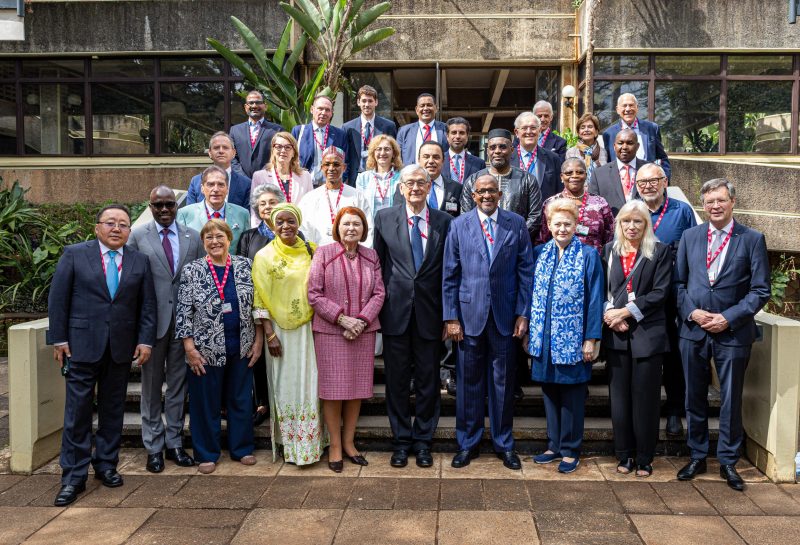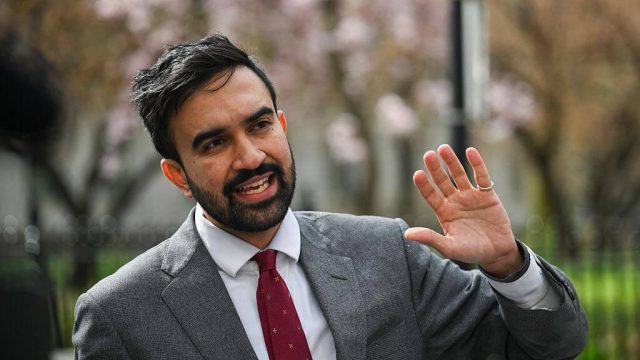Club de Madrid points the way towards fair and equitable financing for all
How can the SDGs be achieved unless governments around the world can find some way to stump up over USD 4 trillion in financing every year?

With the UN Sustainable Development Goals now ten years into the rear-view mirror and the world heading increasingly in the wrong direction, former heads of state gathered in Nairobi, Kenya, in early April to call urgently for a radical restructuring of the global financial architecture to protect the developmental gains of recent decades. Our Policy Director Sofia Martinez was present to witness the pearl-clutching, and sends this report.
The Financing Crisis
The SDGs won’t be achieved unless governments around the world can find some way to stump up over USD 4 trillion in financing every year. And now with the US and Europe choking off even the meagre provision of overseas development assistance they were providing, this financial chasm seems likely only to grow.
Without sufficient, affordable, and accessible financing, countries cannot achieve inclusive growth, climate resilience, or transformative change. The call from Club de Madrid is to realign global financial systems with these goals, ensuring they serve the people they are meant to support.
“ The GEC also supported the Club de Madrid's Leadership for Net Zero Initiative, which convened working groups led by distinguished figures from political, business, and civil society sectors.”
Strategic Moments for Transformative Change
With COP30 in Brazil at the end of the year, there is an opportunity to reshape the global financing landscape – one which the international community has yet to take advantage of. The Club de Madrid urges political leadership to act on the following six priorities:
- Transform Multilateral Development Banks (MDBs): Implement recommendations to optimize balance sheets and scale up hybrid capital. This includes the strategic use of Special Drawing Rights (SDRs) to expand lending by 2030 and regular resource needs reviews across the MDB system to deliver at least $300 billion annually in sustainable development finance.
- Establish a Fair Sovereign Debt Resolution Framework: Create a permanent, multilateral mechanism for sovereign debt restructuring. This mechanism should ensure equitable treatment of all creditors, including the private sector, and incorporate instruments that align debt relief with climate and development objectives.
- Deliver Global Tax Justice: Ensure fair taxation of multinational corporations and the ultra-wealthy. This involves adopting unitary taxation and formulary apportionment, taxing profits where real economic activity occurs, and implementing a global minimum effective corporate tax of 21%-25%.
- Reaffirm Official Development Assistance (ODA): Reverse aid cuts and uphold commitments to allocate 0.7% of GNI to ODA, including 0.2% for Least Developed Countries. ODA must be predictable, accessible, long-term, and counter-cyclical, fully aligned with nationally defined priorities.
- Scale Up Climate Finance: Increase contributions to climate funds such as the Loss and Damage Fund, Green Climate Fund, and Adaptation Fund. These resources must be balanced between mitigation and adaptation, and aligned with country-led strategies and Nationally Determined Contributions (NDCs).
- Advance Inclusive and Accountable Financing: Invest in data architectures and public digital infrastructure to expand financial services access for women, youth, informal workers, and rural communities. Regulatory frameworks must uphold data privacy, consumer protection, and fair competition.
The Role of the Green Economy Coalition
The Green Economy Coalition (GEC) was there at proceedings, helping to bring together diverse stakeholders to advocate for a fair and green future. Our Policy Director Sofia Martinez played a key role in the drafting of the Working Group 1 paper on ‘Scaling Up Funding and the Role of MDBs’, as an expert contributor and analyst.
The GEC also supported the Club de Madrid's Leadership for Net Zero Initiative, which convened working groups led by distinguished figures from political, business, and civil society sectors. This initiative emphasized the importance of robust policies, finance, and technology in achieving net-zero emissions, while prioritizing equity and justice.
Alongside this, we’ve repeatedly called for substantial increases in financing and reforms of the international financial system to rescue the SDGs from potential failure, the importance of addressing climate change, environmental degradation, and biodiversity loss as critical components of a resilient global economy, and the need for strong partnerships and inclusive leadership to drive sustainable development. All of these will be critical if the Club de Madrid’s proposals stand any chance of seeing the light of day.
Conclusion
As the final paragraph of the Club de Madrid WG1 paper states, “None of these proposals are new. They echo a range of governmental, intergovernmental, and nongovernmental declarations, including the Pact for the Future, the Bridgetown Initiative, the Nairobi Declaration, the V20 Accra-Marrakech Agenda, G24 communiques, the FFD Forum, the UN Secretary General’s SDG Stimulus Agenda, the Paris Pact for People and the Planet, and more. The reforms needed to make international financial institutions work for peace, prosperity, and planet are well known—but 2025 must be the year that leaders find the political will to make these reforms a reality.”
Will 2025 be any different from previous years? Only time will tell.


